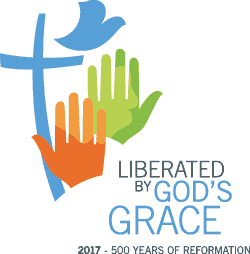WICAS Network Meeting in Asia Highlights Contribution of Women to Lutheran Reformation

Women on the Move in Asia; When Gender Justice and Recognition Join Hands
(LWI) - Thirty-four women and 3 men attended the Lutheran World Federation (LWF) Women in Church and Society (WICAS) network meeting in Kuala Lumpa, Malaysia, aimed at highlighting the contributions made by Asian women and gender justice concerned groups to the ongoing Lutheran Reformation and the implementation of the LWF Gender Justice Policy in the region.
Twelve countries, among the highest number in the recent history of WICAS in Asia, were represented at the 8-13 August gathering: Malaysia, Indonesia, Singapore, , Thailand, India, Myanmar, Korea, Japan, Taiwan and Hong Kong. Input from staff from the LWF Department for World Service program in Nepal (DWS) and from project partners supported by the LWF Department for Mission and Development (DMD) in the Philippines enriched the discussions.
The meeting launched the LWF WICAS initiative "Women on the Move: From Wittenberg to Windhoek," which aims to celebrate women's leadership and participation during the 500 years of Reformation (1517-2017). The two cities represent key moments in this journey: in Germany as the cradle of Lutheran theology, and in Namibia, where the Twelfth LWF Assembly will be held in 2017.
This meeting "has been a privileged space to share women’s experiences in the church from pastoral, mission work and leadership positions, giving visibility to the role of women in church ministries beyond those traditionally allocated to them” said LWF executive secretary for WICAS Rev. Dr. Elaine Neuenfeldt.
“Women theological reflections in daily practice and their tireless contributions to the church are very relevant. In addition, we gather to plant the LWF Gender Justice Policy - in a fertile soil - adapted to the realities and contrasts in Asia," she added.
A key part of the contextual discussions on justice in its biblical sense, centred on the multi-religious context of Malaysia, the growing challenges to its Christian minorities and the increasing number of migrants and refugees entering the country. The gathering also explored gender justice as a key concept for understanding the involvement of women and men in the construction of the church and in Asian society as a whole.
"Gender justice is a crucial aspect in which the churches are called to be the salt and the light in the world. Even though progress has been made, much remains to be done,” said Lutheran Church in Malaysia (LCM) Bishop Aaron Yap.
A presentation given by Aegile Fernandez of NGO Tenaganita, an organization that has defended the rights of migrant women since 1991 and provides protection for vulnerable migrants and refugees such as domestic, plantation and electronic industry workers, connected gender justice with the wider social reality in Malaysia and other Asian countries. In her presentaion, Fernandez highlighted the trafficking of women and children, the contemporary patterns of slave labor, and the disempowerment of large numbers of migrants in Malaysia and other Asian countries.
Bible study sessions led by Rev. Dr. Monica Melanchthon focused on “rescuing the stories of women and encouraging the participants to read the biblical texts critically, using Lutheran hermeneutical tools, without fear of questioning them in a search for genuine understanding.”
In addition, an invitation by the Taman Midah Lutheran Church to attend worship and share with parishioners, helped participants recognize how the local church originated out of the need for the Christian community of Chinese descent to have a space to live out their faith. They paid tribute to Moo Meng Wong, a woman who helped lay the foundations of the church by proposing Bible studies at the homes of community members.
The four-day WICAS meeting concluded with the three sub-regional WICAS Coordination networks (West and South, South East and North East - Asia Lutheran Communion) developing a work plan with concrete steps for the implementation of the Gender Justice Policy, the engagement in the commemorations of 500 years of Reformation and the framework to bring the Asian perspectives to the “Women on the Move” project.
“It is in this dynamics of reflection and action, in the search for gender justice within and outside the church walls, and the recognition of the gifts of women and men in accomplishing the prophetic role of the church, that the WICAS network in Asia has set up its fundaments for the work in the coming years,” said Neunefeldt.

